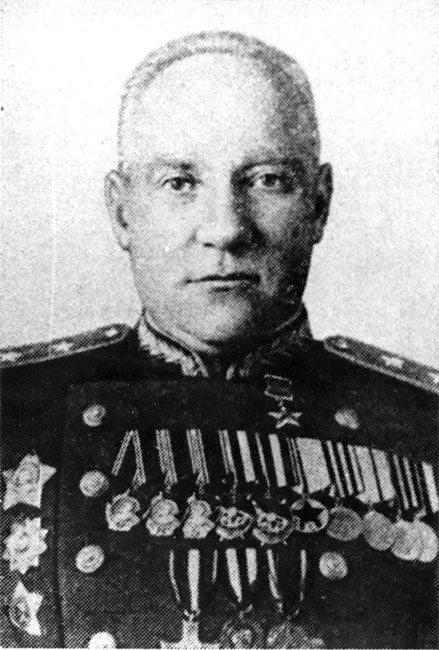Israel (Izrail) Beskin was born in Vitebsk, Belorussia in 1895. As a child Israel first attended a heder (an Orthodox Jewish elementary school). In 1910 he finished a Jewish elementary school that had instruction in Russian. While working as an accountant at a local factory and giving private lessons, Beskin graduated from the Vitebsk gymnasium in 1913 as an external student. In 1914 he enrolled in the Faculty of Law at the University of Kharkov but, due to a lack of funds, after a year of studies he was forced to return to Vitebsk. In 1915 Beskin was drafted into the tsarist army. In 1918 he volunteered to join the newly established Red Army, with which he fought against Alexander Kolchak’s troops in Siberia. Later he took part in the liberation of Khabarovsk and Vladivostok from the White Russian and Japanese forces. He completed the first Moscow artillery courses in 1920. In 1936 he completed his studies at the prestigious Frunze Military Academy. Israel Beskin joined the Communist Party in 1939 and then participated in the Winter War (December 1939-March 1940) between the Soviet Union and Finland.
When war broke out on June 22, 1941 Colonel Beskin was in command of the artillery of the Mechanized Corps of the Central Asian Military District. From December 1941 to May 1942 Beskin was deputy commander of artillery with the 1st and 5th Armies and, later, commander of the artillery of the 53rd, 65th and 70th Armies, fighting at Stalingrad and on the Don, Central, Belorussian, and Northwestern Fronts. He participated in the battle for Moscow in 1941, in the battles for Stalingrad (August 1942 - February 1943) and Kursk (July 1943), and in October and November 1943 participated in the battle for Kiev. In 1944 Beskin participated in the liberation of Belorussia, where in October 1941 Beskin's parents and one of his sisters, along with the other Jews of Vitebsk, were murdered by the Germans.
During the Soviet Vistula–Oder offensive (12 January-2 February, 1945) under Beskin's command the artillery of the 70th Army (of the 2nd Belorussian Front) destroyed the German defense line on the Oder River near the city of Szczecin in western Poland, leading to the capture of many German cities and localities.
For all these achievements he was awarded the Order of the Red Banner and the Order of Suvorov, 1st class and 2nd class. On May 31, 1945 Lieutenant-General Israel Beskin was awarded the title of Hero of the Soviet Union for his organizational skills and the courage he displayed during this military operation. The article “Major-General of Artillery Israel Beskin” by Shmuel Persov, published by the Jewish Anti-Fascist Committee Yiddish newspaper Eynikayt on October 14, 1943, stressed the officer's Jewishness: “While filling out a form about himself [for the military record], Major-General Israel Beskin wrote in the column of 'mother tongue' - 'Yiddish.' Major-General of the artillery Israel Beskin is a devoted son of the Soviet homeland and his [Jewish] people.”
After the war, between 1945 and 1949 Beskin served as commander of artillery in the South-Ural and Turkestan Military Districts. In 1950 he completed advanced academic courses at the Voroshilov Military Academy of the General Staff in Moscow. In 1953 Beskin retired from the army and settled in Irkutsk, Russia.
Israel Beskin died in Irkutsk in 1964.







